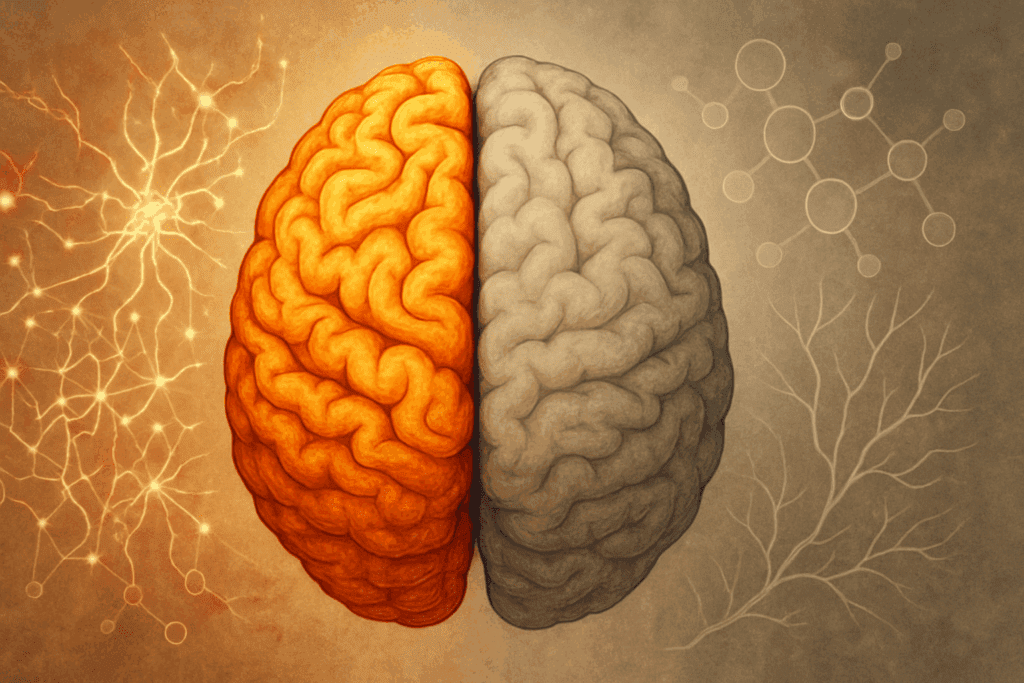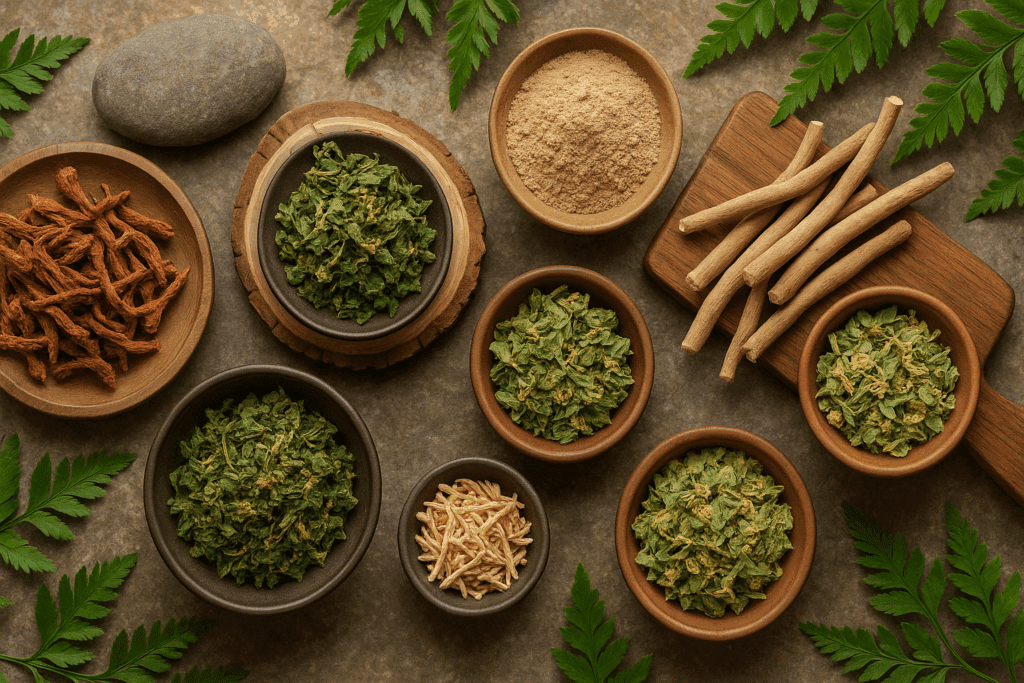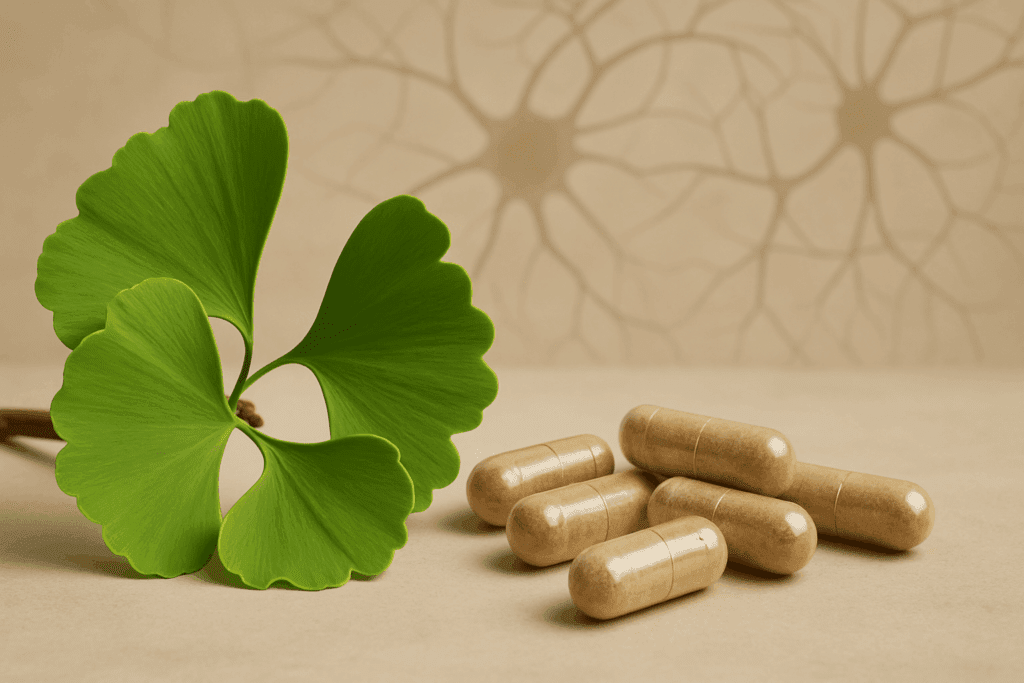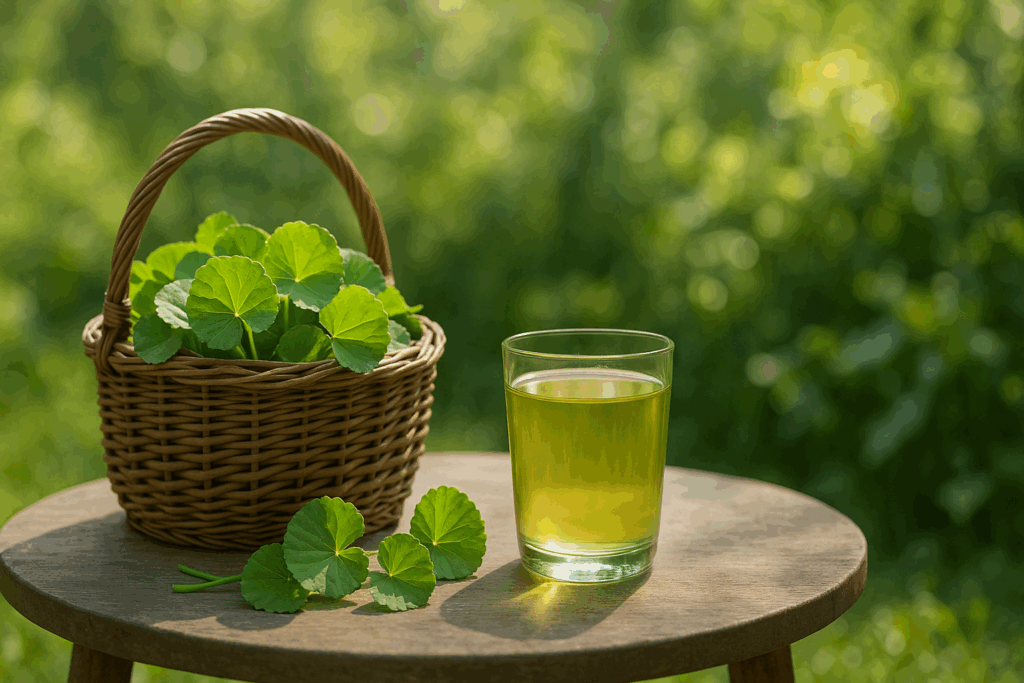Extreme fatigue and memory loss can significantly interfere with daily life, affecting everything from work performance to personal relationships. For many, these symptoms feel interconnected, often surfacing simultaneously and intensifying each other. Whether stemming from chronic stress, underlying health conditions, or nutrient deficiencies, these issues highlight a crucial area of concern in modern wellness: the intersection of physical vitality and cognitive clarity. In recent years, attention has turned toward natural remedies as complementary strategies for support. While synthetic options abound, a growing body of evidence suggests that certain herbs and plant-based ingredients may offer benefits without the side effects often associated with pharmaceuticals. This article explores what science reveals about natural ingredients that may help with extreme fatigue and memory loss, focusing on herbal options known for their cognitive and physical support potential.
Understanding the Connection Between Fatigue and Cognitive Decline
Tiredness and memory loss are often more than occasional nuisances; they can be early indicators of deeper physiological imbalances. Fatigue, especially when persistent, affects more than just physical energy. It interferes with neurotransmitter production, blood circulation, and hormone regulation—each of which plays a vital role in brain function. The connection between fatigue and memory loss is underscored in multiple studies showing how chronic sleep deprivation, mitochondrial dysfunction, and inflammation can impair the brain’s ability to store and retrieve information. Memory and brain function are tightly linked, and when energy production falters, the brain is among the first organs to show signs of distress.
The importance of memory in daily functioning cannot be overstated. Memory is not just a record of past events; it is a cornerstone of identity, learning, and decision-making. Research into memory and brain function has consistently shown that even mild cognitive impairment can reduce one’s ability to perform basic tasks and interact socially. For those experiencing fatigue memory loss symptoms, the interplay of physical depletion and mental fog can feel overwhelming. Scientific studies on memory emphasize the importance of neuroprotection, particularly when addressing early signs of cognitive decline.

Herbal Nootropics and Adaptogens: Foundations of Natural Cognitive Support
Herbs that target both energy and mental performance are often referred to as nootropics or adaptogens. Nootropics support memory and cognitive clarity, while adaptogens help the body adapt to stress and restore energy balance. For individuals experiencing extreme fatigue and memory loss, these two categories of herbs can offer synergistic effects. When chosen carefully and supported by appropriate lifestyle modifications, these botanicals may serve as valuable tools in reducing tired and memory loss symptoms.
One of the primary benefits of using herbs over synthetic stimulants is the potential for sustained, gentle support without triggering jitteriness or dependency. Adaptogens such as Rhodiola rosea and Ashwagandha, for example, have been shown in clinical trials to improve fatigue resilience and support cognitive clarity. Memory studies on these herbs indicate improvements in attention, recall, and working memory, especially under stress. By supporting the hypothalamic-pituitary-adrenal (HPA) axis and reducing oxidative stress, these herbs help stabilize the body’s internal environment, making them ideal candidates for holistic fatigue memory loss support.
Ginkgo Biloba: A Well-Researched Ally for Brain and Circulatory Health
Among the most researched herbal remedies for cognitive function is Ginkgo biloba. This ancient plant has been used for centuries in traditional Chinese medicine and is now backed by numerous clinical studies. Ginkgo works primarily by improving blood flow to the brain, thereby enhancing oxygen and nutrient delivery. For individuals dealing with extreme fatigue and memory loss, Ginkgo’s ability to support both energy metabolism and neuronal function is especially noteworthy.
Studies examining memory and brain function frequently include Ginkgo as a central subject due to its antioxidant properties and its role in modulating neurotransmitters such as acetylcholine and dopamine. These neurotransmitters are key to mood regulation and memory formation. Research has shown that Ginkgo may benefit those experiencing early signs of cognitive decline and age-related memory loss. Additionally, its vasodilating effects can help those with fatigue-related symptoms due to poor circulation, making it an ideal herb to consider for those with tiredness and memory loss.

Panax Ginseng: Boosting Physical and Cognitive Stamina Simultaneously
Another powerful adaptogen, Panax ginseng, has earned a reputation for enhancing both physical stamina and mental alertness. Native to East Asia and widely used in traditional Korean and Chinese medicine, this root contains active compounds called ginsenosides, which have been extensively studied for their effects on the nervous system, hormone regulation, and energy production.
Clinical trials involving Panax ginseng have demonstrated improvements in fatigue scores, working memory, and overall cognitive performance. For those experiencing extreme fatigue and memory loss, the herb’s dual action on both the body and mind is particularly valuable. It modulates the stress response by balancing cortisol levels while also improving mitochondrial energy output—a key function often impaired in chronic fatigue syndromes. As research into memory and brain function continues to evolve, Panax ginseng remains a central focus due to its consistent performance across cognitive domains in controlled studies.
Bacopa Monnieri: A Cognitive Enhancer with Deep Roots in Ayurveda
Bacopa monnieri, also known as Brahmi, is a revered herb in Ayurvedic medicine with a long history of use in supporting learning and memory. Modern research has validated many of these traditional claims, showing that Bacopa can improve memory retention, verbal recall, and executive function over extended use.
The active compounds in Bacopa, known as bacosides, play a role in enhancing synaptic communication and protecting brain cells from oxidative stress. This is particularly useful for individuals facing tired and memory loss, as the brain’s resilience to fatigue-related damage is bolstered. In memory studies, participants supplementing with Bacopa showed significant improvements in recall tasks and reduced symptoms of anxiety and mental fatigue. These findings align with broader understandings of how memory and brain function can be supported through consistent use of targeted herbal compounds.

Lion’s Mane Mushroom: Neurogenesis and Cognitive Regeneration
Unlike many other nootropic herbs that focus on circulation and neurotransmission, Lion’s Mane (Hericium erinaceus) stands out for its potential to stimulate neurogenesis. This edible mushroom promotes the production of nerve growth factor (NGF), a protein essential for the growth, maintenance, and survival of neurons.
For individuals grappling with fatigue memory loss, Lion’s Mane may help reverse or mitigate some of the neurological consequences of prolonged exhaustion. Fatigue impairs neural repair, which over time can compromise both memory formation and retrieval. Several human and animal studies support the idea that consistent supplementation with Lion’s Mane can improve cognitive performance, focus, and short-term memory. Its neuroregenerative properties make it a compelling choice for those looking to address extreme fatigue and memory loss with a natural, evidence-based option.
Gotu Kola: Enhancing Circulation and Mental Calm
Often paired with Bacopa in traditional healing systems, Gotu kola (Centella asiatica) is another herb that has gained recognition in the West for its ability to improve memory and promote relaxation. This dual action is essential for individuals dealing with tiredness and memory loss, where stress often exacerbates both physical fatigue and cognitive decline.
Research has shown that Gotu kola enhances cerebral blood flow, supports collagen synthesis (important for vascular integrity), and may improve mood and mental performance. It is particularly beneficial for those who feel mentally foggy after extended periods of stress or lack of sleep. Integrating Gotu kola into a cognitive support regimen may be especially helpful when memory study efforts are being hindered by emotional or physiological depletion.

Holy Basil (Tulsi): A Sacred Herb for Energy and Emotional Resilience
Holy basil, also known as Tulsi, is an adaptogenic herb revered in Ayurvedic medicine for its ability to support the body’s resilience to physical and emotional stress. Emerging research supports its traditional use, particularly in enhancing mood, reducing cortisol, and improving cognitive clarity.
Tulsi’s antioxidant-rich profile helps combat the oxidative damage often seen in those experiencing chronic tiredness and memory loss. Its influence on neurotransmitters, especially dopamine and serotonin, adds to its calming yet invigorating effects. For individuals seeking to improve memory and brain function while also managing emotional fatigue, Holy basil offers a comprehensive and balanced approach.
Ashwagandha: Calming the Mind While Boosting Vital Energy
Ashwagandha (Withania somnifera) is another cornerstone of adaptogenic therapy, often used to restore energy and reduce stress-induced cognitive impairment. Its withanolide content influences multiple physiological systems, making it a versatile herb for those dealing with extreme fatigue and memory loss.
Studies have shown that Ashwagandha can improve sleep quality, reduce cortisol levels, and enhance attention and information processing speed. In memory studies, participants reported fewer episodes of forgetfulness and improved task performance. Because chronic stress is a known contributor to both tiredness and memory loss, Ashwagandha’s ability to calm the nervous system while improving energy output makes it a valuable ally in long-term cognitive support.
How to Choose and Use Herbs for Fatigue and Memory Support
Choosing the right herbs to address fatigue memory loss requires careful consideration of personal health history, lifestyle, and symptom severity. Not all herbs work the same way for every individual, and some may interact with medications or pre-existing conditions. It’s advisable to consult a healthcare provider with experience in integrative or functional medicine before beginning any new supplement regimen.
The timing and method of herb consumption can also impact efficacy. For example, stimulating herbs like Panax ginseng or Rhodiola may be best taken earlier in the day to avoid interference with sleep. Conversely, calming herbs such as Ashwagandha and Holy basil may be more beneficial when used in the evening. Long-term consistency is key, as many of these herbs require several weeks of regular use to yield noticeable benefits in memory and brain function.

Frequently Asked Questions: Natural Support for Extreme Fatigue and Memory Loss
1. Can dietary habits influence tiredness and memory loss beyond what herbs can offer?
Absolutely. While herbs provide targeted support for fatigue and memory, foundational dietarychoices shape the brain’s long-term resilience. Nutrients like omega-3 fatty acids, choline, and vitamin B12 play essential roles in maintaining cognitive function and cellular energy. Diets deficient in these nutrients may worsen symptoms of tiredness and memory loss, even when herbal supplements are used consistently. For example, skipping meals or relying heavily on processed foods can lead to blood sugar fluctuations that trigger fatigue memory loss episodes. By integrating brain-supportive foods such as wild-caught salmon, eggs, leafy greens, and legumes, individuals may experience a more stable cognitive and physical energy baseline.
2. How can extreme fatigue and memory loss affect interpersonal relationships?
The impact of extreme fatigue and memory loss extends well beyond personal productivity—it oftenstrains communication, empathy, and relational stability. Forgetting important dates or details can unintentionally hurt loved ones, while fatigue may reduce emotional bandwidth, making people seem distant or disengaged. This dynamic can be particularly pronounced in professional settings where reliability and recall are essential. Addressing fatigue memory loss holistically—through herbs, nutrition, and lifestyle interventions—can help restore not only mental clarity but also interpersonal trust and connection. Cultivating awareness of these broader implications encourages a more compassionate approach to managing symptoms.
3. Is there a link between digital device overuse and fatigue memory loss symptoms?
Yes, increasing research suggests that excessive screen time contributes to both cognitive overloadand mental fatigue. Constant multitasking, notifications, and exposure to blue light can fragment attention, degrade sleep quality, and ultimately result in tired and memory loss complaints. Moreover, the brain’s ability to consolidate memories is impaired when rest and focused downtime are lacking. Herbal strategies can help buffer these effects, but pairing supplementation with “digital hygiene”—such as scheduled screen breaks, reduced exposure before bedtime, and mindfulness practices—can significantly improve outcomes for those experiencing fatigue memory loss.
4. What role does the gut-brain axis play in extreme fatigue and memory loss?
The gut-brain axis—a bidirectional communication system between the digestive tract and the brai—plays a vital but often overlooked role in cognitive function and energy metabolism. Dysbiosis, or microbial imbalance in the gut, has been linked to inflammation, mood instability, and impaired memory. People experiencing tiredness and memory loss may benefit from probiotic-rich foods like yogurt, kefir, and kimchi, which support microbiome health. Some herbs, such as turmeric and ginger, not only aid digestion but also reduce neuroinflammation by modulating gut activity. Incorporating gut-supportive strategies alongside nootropic herbs can create a more comprehensive approach to tackling extreme fatigue and memory loss.
5. Can lifestyle factors like light exposure and movement influence symptoms of fatigue memory loss?
Very much so. Light exposure, particularly early in the morning, helps regulate circadian rhythmsand optimize cortisol production—both critical for sustained energy and cognitive alertness. Sedentary habits, on the other hand, impair circulation and reduce the production of brain-derived neurotrophic factor (BDNF), which supports memory and brain function. For those dealing with tired and memory loss symptoms, incorporating regular movement (even light stretching or short walks) and natural light exposure can amplify the benefits of herbal supplements. These physical cues help the body synchronize internal systems that govern alertness, mood, and memory retention.
6. Are there overlooked environmental toxins that may worsen tiredness and memory loss?
Yes, environmental toxins such as heavy metals (lead, mercury), mold spores, and persistentorganic pollutants have all been associated with neurological disruption. These substances can impair mitochondrial function and disrupt neurotransmitter balance, both of which are central to fatigue memory loss issues. For individuals experiencing unexplained tired and memory loss symptoms, testing for environmental toxicities—especially in cases where herbal and dietary interventions seem ineffective—can reveal hidden contributors. Activated charcoal, chlorella, and cilantro are examples of natural detoxifiers sometimes used under professional supervision to support recovery. Mitigating exposure while enhancing cellular repair is key to restoring long-term cognitive and physical vitality.
7. How does emotional suppression contribute to fatigue memory loss in the long run?
Suppressing emotions—particularly chronic stress, grief, or unresolved trauma—can lead tophysiological tension and cognitive disconnection. Over time, this internalized stress depletes adrenal reserves and floods the body with cortisol, undermining both memory and stamina. Individuals with extreme fatigue and memory loss may find that emotional release practices such as journaling, breathwork, or therapy complement herbal protocols effectively. These approaches don’t just reduce stress; they also improve focus, self-awareness, and mental clarity. When emotional expression is integrated with somatic and herbal healing, the pathway to cognitive renewal becomes far more sustainable.
8. Can specific breathing techniques improve symptoms of tired and memory loss?
Yes, breathing patterns directly influence the autonomic nervous system and brain oxygenation.Practices like alternate-nostril breathing or box breathing have been shown to reduce stress hormones, enhance focus, and promote calm—all of which are beneficial for those struggling with fatigue memory loss. Shallow or rapid breathing, common in chronically stressed individuals, reduces oxygen availability to the brain and may worsen memory and energy deficits. Integrating breathwork into daily routines—especially alongside herbs that support adrenal recovery—can create powerful synergy in reversing tiredness and memory loss patterns. Just five minutes of mindful breathing can reset mental clarity and improve the body’s stress response.
9. Why do some people experience extreme fatigue and memory loss despite good sleep and nutrition?
While sleep and diet are foundational, they don’t guarantee optimal energy or cognition on theirown. Mitochondrial dysfunction, chronic infections (like Epstein-Barr virus), or autoimmune activity can all underlie persistent fatigue memory loss despite otherwise healthy routines. These issues often require functional lab testing and individualized protocols that combine herbs with more targeted interventions like coenzyme Q10, alpha-lipoic acid, or L-carnitine. For those facing stubborn tired and memory loss, it may be necessary to look beyond conventional metrics and explore the bioenergetic underpinnings of their symptoms. Understanding the complexity of these interactions is key to long-term resolution.
10. What innovations are on the horizon for managing fatigue memory loss naturally?
Emerging research into precision herbal medicine, neurofeedback, and wearable biofeedback tools ispaving new paths for managing tiredness and memory loss. Technologies that track brain wave coherence or heart rate variability are increasingly used to tailor interventions and monitor real-time progress. Additionally, adaptogen stacking—strategically combining herbs like Rhodiola, Lion’s Mane, and Gotu Kola—is gaining traction in personalized wellness protocols. Some startups are even exploring AI-generated nootropic formulas based on genetic testing and brain chemistry profiling. As this field evolves, it becomes clear that managing extreme fatigue and memory loss will increasingly involve both ancient botanical wisdom and cutting-edge biohacking tools.

Closing Thoughts: Harnessing Nature’s Intelligence for Better Energy and Memory
The modern challenges of extreme fatigue and memory loss are complex and multifactorial, but nature offers a suite of tools that may help restore balance. From neuroprotective mushrooms like Lion’s Mane to circulation-enhancing botanicals like Ginkgo biloba, the world of herbal medicine provides scientifically supported options for those seeking cognitive and physical vitality. As memory study research continues to shed light on how different herbs influence brain pathways, the use of natural ingredients in managing tired and memory loss symptoms is becoming increasingly validated.
Memory is important not only for academic or professional performance but for the very fabric of our relationships and sense of self. Supporting it naturally, especially during times of depletion, is both a practical and compassionate approach. For those navigating the fog of fatigue memory loss, integrating thoughtfully chosen herbs can mark the beginning of a return to clarity, focus, and energy.
Further Reading:
7 Best Herbs for Memory and Brain Health
Herbal drugs and natural bioactive products as potential therapeutics


